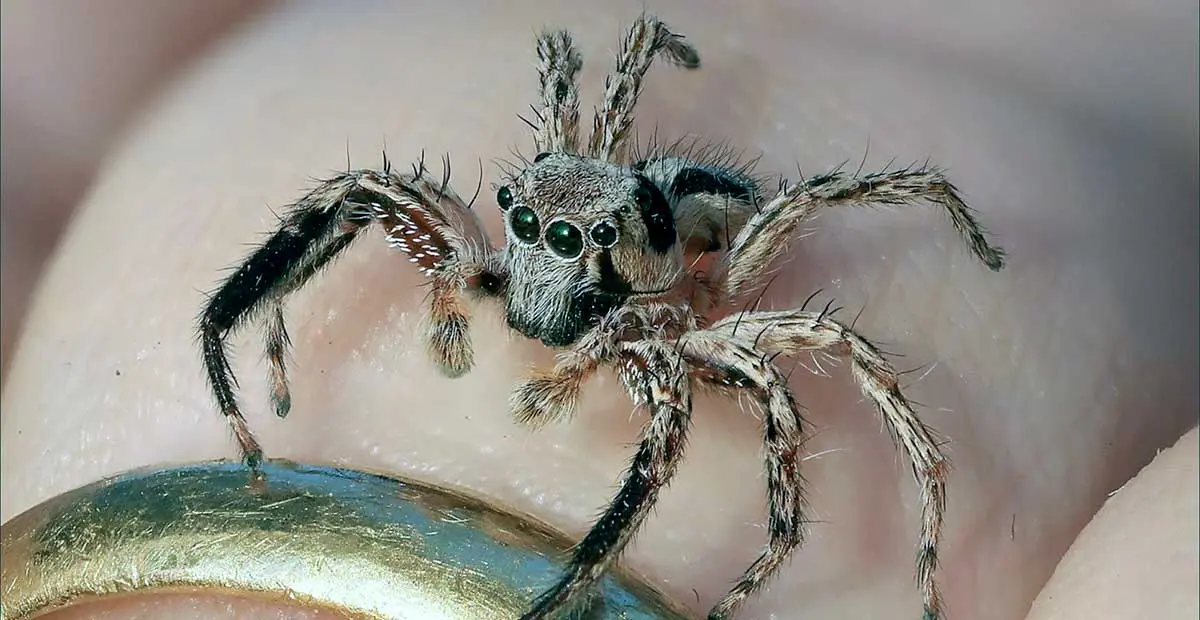**You might think spiders are just creepy-crawly little things that spin webs and scare people, but there’s a whole lot more going on in those tiny heads than you’d expect. Spiders aren’t just mindless automatons; they’re surprisingly intelligent creatures with some seriously impressive problem-solving skills. If you’ve ever wondered how smart spiders really are, you’re in the right place. Let’s dive into the fascinating world of these eight-legged wonders and uncover the truth about their intelligence.**
When most people think of spiders, fear or disgust often comes to mind. But did you know that these creatures are not only vital for maintaining ecological balance but also possess remarkable cognitive abilities? From building intricate webs to hunting strategies, spiders exhibit behaviors that challenge the stereotype of them being simple creatures. So, are spiders smarter than we give them credit for? Absolutely.
In this article, we’ll explore the intelligence of spiders, their problem-solving capabilities, and the science behind their behavior. Whether you’re a spider enthusiast or just curious about the natural world, this is one journey you won’t want to miss. Let’s get started!
Table of Contents:
- Introduction to Spider Intelligence
- Biography of Spiders
- The Brain Behind the Web
- Web Construction Mastery
- Hunting Tactics and Strategy
- Learning and Adaptation
- Social Behavior in Spiders
- Common Myths About Spider Intelligence
- Scientific Research on Spider Intelligence
- Conclusion: How Smart Are Spiders?
Introduction to Spider Intelligence
Let’s face it—spiders are everywhere. They’re in your garden, under your bed, and sometimes even in your shower. But while they may seem like simple creatures, the truth is that spiders are incredibly smart. Their intelligence isn’t about having big brains; it’s about efficiency, adaptability, and survival. So, how exactly do spiders showcase their smarts?
First off, spiders have evolved over millions of years to become master builders, hunters, and strategists. Their webs are engineering marvels that require precise calculations, and their hunting techniques are as clever as they come. Some spiders can even learn from experience and adapt their behavior based on environmental changes. Sounds pretty impressive, right?
Biography of Spiders
Before we dive deeper into their intelligence, let’s take a step back and understand who these creatures really are. Spiders belong to the arachnid family and are found in almost every corner of the world. With over 45,000 known species, spiders come in all shapes and sizes, each with its own unique set of skills and behaviors.
Here’s a quick breakdown of some key facts about spiders:
| Fact | Details |
|---|---|
| Species | Over 45,000 identified species |
| Habitat | Found in nearly every environment on Earth |
| Diet | Primarily insects, but some species eat small animals |
| Web Types | Orb webs, funnel webs, cobwebs, and more |
Understanding their biology is crucial to appreciating their intelligence. Spiders aren’t just bugs—they’re complex creatures with a lot to teach us.
The Brain Behind the Web
Now, let’s talk about the brains of these eight-legged geniuses. While spiders don’t have brains as we humans know them, they do have a centralized nervous system that controls their actions. This system allows them to perform complex tasks like building webs, hunting, and even recognizing threats.
For example, orb-weaving spiders create perfectly symmetrical webs by following a specific sequence of steps. They start with a bridge line, then add anchor points, and finally construct the spiral threads. It’s like watching an artist at work, except this artist doesn’t need a brush or canvas.
How Do Spiders Build Such Complex Webs?
- They use silk-producing glands to spin different types of silk for various purposes.
- They rely on gravity and wind to position their webs correctly.
- They adjust their web designs based on the environment and prey availability.
It’s not just about spinning silk—it’s about precision, planning, and execution. And all of this comes from a creature with a brain smaller than a pinhead. Talk about efficiency!
Web Construction Mastery
Speaking of webs, let’s talk about why they’re such a big deal. Spider webs aren’t just random collections of silk threads; they’re carefully engineered traps designed to catch prey. But that’s not all—spiders also use their webs for communication, transportation, and even protection.
Did you know that some spiders can “tune” their webs to detect vibrations? This allows them to sense when prey is caught or when a potential mate is nearby. It’s like having a built-in radar system. And if that’s not cool enough, some spiders can even repair their webs in minutes after damage occurs.
Types of Spider Webs
- Orb Webs: The classic circular webs that most people think of.
- Funnel Webs: Horizontal webs with a funnel-shaped retreat for the spider.
- Cobwebs: Messy, three-dimensional webs often found in corners.
Each type of web serves a specific purpose, and spiders adapt their web-building techniques based on their environment and needs. It’s a true testament to their problem-solving abilities.
Hunting Tactics and Strategy
Not all spiders rely on webs to catch their prey. Some, like the wolf spider and jumping spider, are active hunters. These spiders use stealth, speed, and strategy to track down and capture their meals. And let me tell you, they’re really good at it.
Jumping spiders, for instance, have excellent vision and can leap several times their body length to ambush prey. They plan their attacks carefully, taking into account distance, terrain, and even wind speed. It’s like watching a tiny ninja in action.
What Makes Spider Hunting So Effective?
- Excellent sensory perception, including sharp vision and vibration detection.
- Ability to learn from past experiences and improve hunting techniques.
- Adaptability to different environments and prey types.
Whether they’re web builders or active hunters, spiders are masters of their craft. Their hunting strategies are as diverse as they are effective.
Learning and Adaptation
One of the most fascinating aspects of spider intelligence is their ability to learn and adapt. Studies have shown that spiders can modify their behavior based on experience and environmental changes. For example, if a spider’s web isn’t catching enough prey, it might change its design or location to improve success rates.
Some spiders have even been observed teaching each other new skills. In one experiment, researchers found that spiders could learn to solve puzzles by observing others. This kind of social learning is rare in the animal kingdom and highlights the cognitive abilities of these creatures.
Examples of Spider Adaptation
- Changing web designs to match new environments.
- Modifying hunting strategies based on prey availability.
- Learning to avoid dangerous predators through trial and error.
It’s clear that spiders aren’t just reacting to their surroundings—they’re actively learning and adapting to thrive. That’s pretty smart for a creature that fits in the palm of your hand.
Social Behavior in Spiders
While most spiders are solitary creatures, some species exhibit social behavior that’s worth noting. Social spiders live in colonies and work together to build massive webs, hunt prey, and care for their young. This cooperative behavior is a testament to their intelligence and ability to form complex social structures.
One example of social spiders is the African funnel-web spider. These spiders live in groups of up to 50,000 individuals and work together to construct webs that can span several meters. They share resources, defend their colony, and even divide labor among members. It’s like a tiny spider city!
Why Do Some Spiders Live in Groups?
- To increase hunting success and capture larger prey.
- To protect themselves from predators and environmental threats.
- To share resources and reduce competition for food.
Social behavior in spiders challenges the stereotype of them being solitary, aggressive creatures. It shows that even in the insect world, cooperation can lead to success.
Common Myths About Spider Intelligence
There are a lot of misconceptions about spiders, especially when it comes to their intelligence. Some people think spiders are mindless machines driven solely by instinct, while others believe they’re out to get us. Neither of these is true. Spiders are intelligent creatures with complex behaviors that are often misunderstood.
Here are a few common myths about spider intelligence:
- Myth #1: Spiders are stupid because they’re small. Fact: Size doesn’t determine intelligence. Spiders can solve complex problems and adapt to their environment.
- Myth #2: Spiders only rely on webs to hunt. Fact: Many spiders are active hunters with advanced strategies for catching prey.
- Myth #3: Spiders don’t have emotions. Fact: While we can’t say for sure if spiders feel emotions, they do exhibit behaviors that suggest they’re capable of learning and forming social bonds.
Busting these myths is important for appreciating the true nature of spiders and their intelligence.
Scientific Research on Spider Intelligence
Over the years, scientists have conducted numerous studies to better understand spider intelligence. These studies have revealed fascinating insights into how spiders think, learn, and adapt. From experiments on web-building to observations of hunting behavior, researchers are uncovering new information about these creatures all the time.
For example, a study published in the journal Animal Behaviour found that spiders can recognize and respond to specific sounds. Another study showed that some spiders can solve puzzles and remember solutions for extended periods. These findings challenge the notion that spiders are simple creatures and highlight their cognitive abilities.
Key Findings from Spider Research
- Spiders can recognize and respond to sound vibrations.
- They can solve puzzles and remember solutions.
- Some species exhibit social learning and cooperation.
As research continues, we’re likely to discover even more about the intelligence of spiders. Who knows? Maybe one day we’ll find out they’re even smarter than we think!
Conclusion: How Smart Are Spiders?
So, how smart are spiders? Pretty darn smart, if you ask me. From building intricate webs to solving puzzles and adapting to their environment, spiders exhibit a level of intelligence that’s often overlooked. They’re not just creepy-crawly creatures—they’re fascinating examples of evolution and adaptation in action.
As we’ve explored in this article, spiders are capable of complex behaviors, social interactions, and problem-solving. They challenge our assumptions about intelligence and remind us that size doesn’t matter when it comes to smarts. So, the next time you see a spider, take a moment to appreciate the little genius hiding in plain sight.
Now, it’s your turn! Leave a comment below and let us know what you think about spider intelligence. Did you learn something new? Are there any spider facts you’d like to share? And don’t forget to check out our other articles on the amazing world of animals. Until next time, stay curious and keep exploring!


